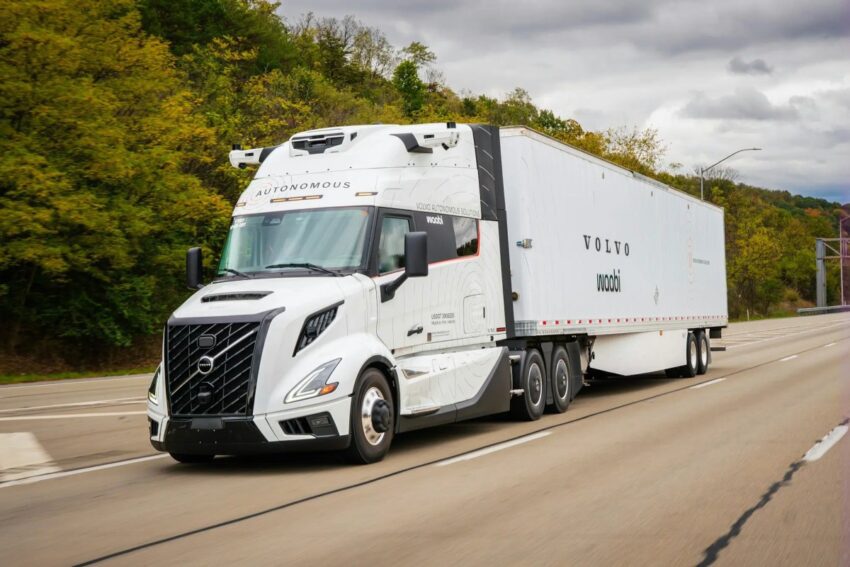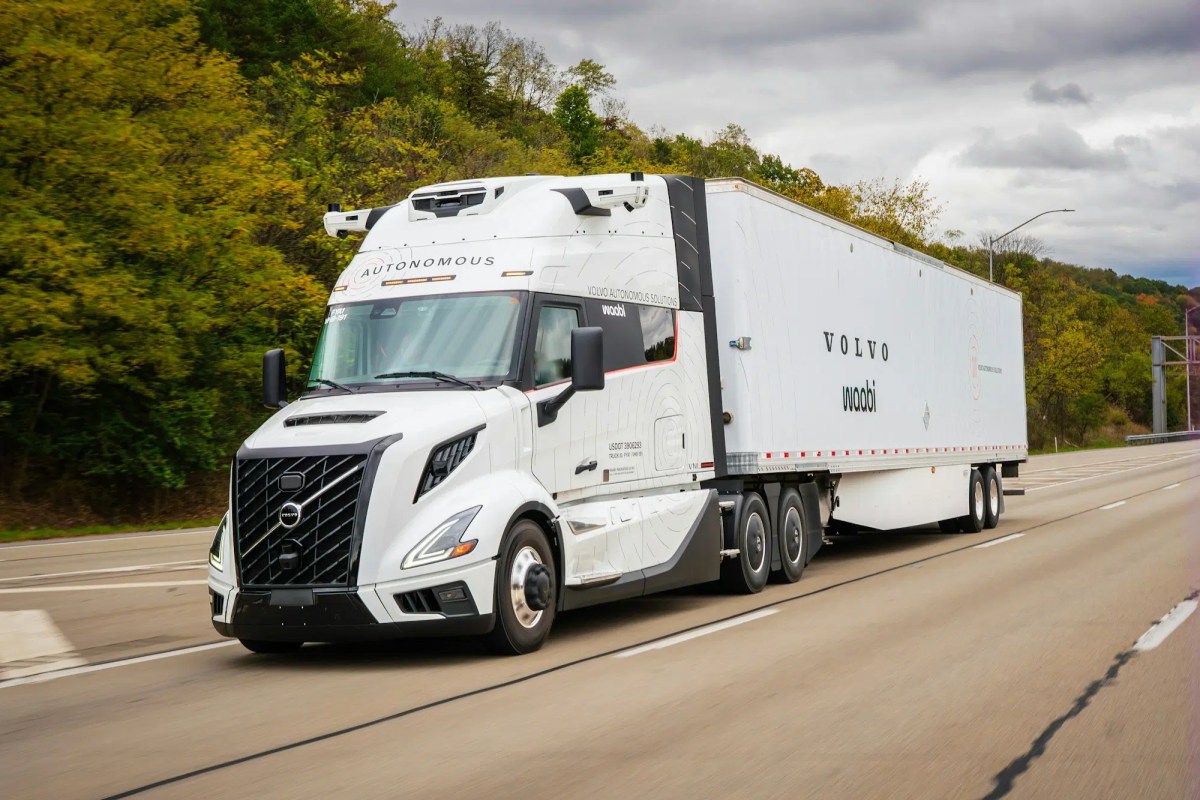
waabi unveils autonomous truck made in partnership Waabi has officially unveiled its latest innovation, an autonomous truck developed in collaboration with Volvo Autonomous Solutions.
waabi unveils autonomous truck made in partnership
Background on Waabi and Volvo’s Partnership
Earlier this year, Waabi, a prominent player in the autonomous vehicle sector, announced a strategic partnership with Volvo Autonomous Solutions. This collaboration aims to leverage Volvo’s advanced autonomy platform alongside Waabi’s sophisticated software stack to create a custom-designed truck tailored for autonomous operations. The partnership signifies a significant step forward in the evolution of self-driving technology, particularly in the commercial trucking sector.
Waabi, founded by industry veterans including former Uber ATG head Raquel Urtasun, has focused on developing a robust software platform that enhances the capabilities of autonomous vehicles. The company has positioned itself as a leader in the field, emphasizing safety, efficiency, and adaptability in its technology. Volvo, with its extensive history in the automotive industry and commitment to innovation, brings a wealth of experience and resources to the partnership, making it a formidable alliance in the race toward fully autonomous transportation.
Features of the New Autonomous Truck
The newly unveiled autonomous truck is built on Volvo’s established platform, which is known for its reliability and performance in various driving conditions. The integration of Waabi’s software stack enhances the truck’s capabilities, allowing it to navigate complex environments with greater ease and precision.
Advanced Safety Features
Safety remains a top priority in the development of autonomous vehicles. The truck is equipped with multiple layers of safety features, including:
- Real-time Monitoring: The vehicle continuously assesses its surroundings using a combination of cameras, LiDAR, and radar systems to detect obstacles and respond accordingly.
- Redundant Systems: Critical systems are designed with redundancy to ensure that if one component fails, others can take over, maintaining operational integrity.
- Emergency Protocols: The truck is programmed with advanced emergency protocols that allow it to safely navigate unexpected situations, such as sudden road closures or adverse weather conditions.
Efficiency and Performance
In addition to safety, the truck is designed for optimal efficiency. Key performance features include:
- Route Optimization: Waabi’s software uses machine learning algorithms to analyze traffic patterns and optimize routes, reducing fuel consumption and delivery times.
- Adaptive Driving: The truck can adapt its driving style based on real-time data, ensuring smooth operation in various conditions, whether on highways or urban streets.
- Payload Capacity: Built on Volvo’s robust chassis, the truck maintains a high payload capacity, making it suitable for a wide range of freight applications.
Implications for the Trucking Industry
The introduction of Waabi’s autonomous truck has significant implications for the trucking industry. As companies increasingly seek to automate their fleets, the demand for reliable and efficient autonomous vehicles is expected to rise. This development could lead to several transformative changes in the sector.
Cost Reduction
One of the most immediate benefits of adopting autonomous trucks is the potential for cost reduction. By minimizing the need for human drivers, companies can significantly lower labor costs. Additionally, the efficiency gains from optimized routes and reduced fuel consumption can lead to further savings. This financial incentive may encourage more companies to invest in autonomous technology.
Addressing Driver Shortages
The trucking industry has been grappling with a persistent driver shortage, which has been exacerbated by the COVID-19 pandemic. Autonomous trucks could help alleviate this issue by providing a reliable alternative to human drivers. While the transition to fully autonomous fleets will take time, the introduction of such technology could help bridge the gap in the short term.
Regulatory Challenges
Despite the promising advancements in autonomous trucking, regulatory challenges remain a significant hurdle. Governments worldwide are still developing frameworks to govern the operation of autonomous vehicles on public roads. Waabi and Volvo will need to work closely with regulatory bodies to ensure compliance and advocate for policies that support the safe integration of autonomous trucks into the existing transportation infrastructure.
Stakeholder Reactions
The unveiling of the autonomous truck has garnered attention from various stakeholders in the industry. Reactions have been largely positive, with many expressing optimism about the future of autonomous trucking.
Industry Experts
Industry experts have praised the collaboration between Waabi and Volvo, highlighting the strengths each company brings to the table. Many believe that this partnership could set a new standard for autonomous vehicles in the commercial sector. “Combining Waabi’s cutting-edge software with Volvo’s robust hardware creates a powerful solution that could redefine logistics and transportation,” said an industry analyst.
Logistics Companies
Logistics companies are particularly interested in the potential efficiency gains offered by autonomous trucks. Several major players in the logistics sector have already expressed interest in exploring partnerships with Waabi and Volvo to integrate autonomous technology into their operations. “We are always looking for ways to improve our supply chain efficiency, and autonomous trucks could be a game-changer for us,” stated a logistics executive from a leading firm.
Regulatory Bodies
Regulatory bodies have also taken note of the advancements in autonomous trucking. While some officials have expressed enthusiasm about the potential benefits, others have raised concerns about safety and the readiness of current infrastructure to accommodate autonomous vehicles. Ongoing discussions between industry leaders and regulators will be crucial in shaping the future of autonomous trucking.
Future Prospects
The unveiling of Waabi’s autonomous truck marks a significant milestone in the journey toward fully autonomous transportation. As technology continues to evolve, the potential applications for autonomous trucks are vast. From long-haul freight to last-mile delivery, the possibilities are endless.
Integration with Smart Cities
As cities around the world become smarter, the integration of autonomous trucks into urban environments will be a key focus. Future developments may include collaboration with smart city initiatives, where autonomous vehicles communicate with traffic management systems to optimize flow and reduce congestion.
Environmental Impact
Another important consideration is the environmental impact of autonomous trucks. With a focus on efficiency and reduced fuel consumption, these vehicles could play a role in lowering carbon emissions in the transportation sector. As sustainability becomes a priority for many companies, the adoption of autonomous technology may align with broader environmental goals.
Continued Innovation
Waabi and Volvo’s partnership is just one example of the ongoing innovation in the autonomous vehicle space. As competition intensifies, companies will continue to push the boundaries of what is possible, leading to advancements in safety, efficiency, and overall performance. The future of autonomous trucking looks promising, with the potential to reshape the logistics landscape in the coming years.
In conclusion, the unveiling of Waabi’s autonomous truck in partnership with Volvo marks a significant advancement in the field of autonomous transportation. With a focus on safety, efficiency, and adaptability, this new vehicle is poised to make a substantial impact on the trucking industry. As stakeholders from various sectors react positively to this development, the future of autonomous trucking appears bright, albeit with challenges that need to be addressed along the way.
Source: Original report
Was this helpful?
Last Modified: October 29, 2025 at 8:35 am
0 views















